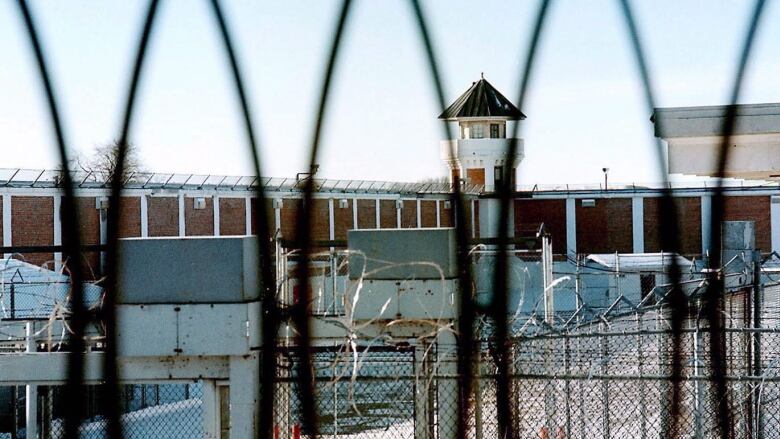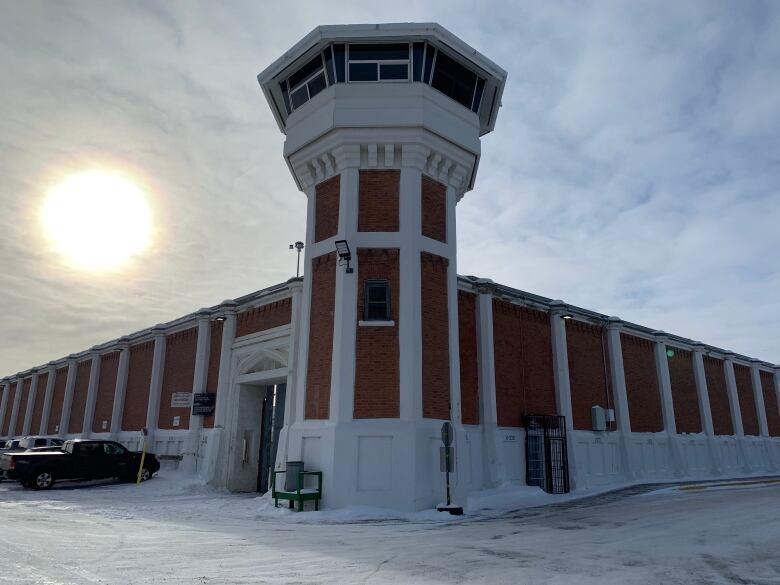Saskatchewan Penitentiary leads nation's prisons in active COVID-19 cases
Active case count for inmates at the Prince Albert, Sask., prison jumps to 104

Saskatchewan Penitentiary now has the dubious distinction of having more known active COVID-19 cases among inmates than any other federal prison in the country.
Earlier this week,CBC reported thatabout70 inmates at the Prince Albert prison had tested positive for the virus. Now that number has jumped to 104, according to Correctional Services Canada.
JoycevilleInstitutionin Kingston, Ont., had the next highest number of active cases among inmates Thursday,with89,followed by Stony Mountain Institution in Manitoba, with 70, according to Correctional Service Canada.
One inmate advocate said conditions inside Saskatchewan Penitentary are ripe for the spread of COVID-19, suggesting the prison is unsanitaryand that inmates are packed too closely together.
In a letter to the Office of the Correctional Investigator, Sherri Maier said some inmates in the Prince Albert prison were protesting conditions by launching a hunger strike.
We are working closely with our public health partners, unions, stakeholders and Elders- Kelly Dae Dash, Correctional Service Canada
Inmates protest conditions
Today, the correctional service confirmed that inmates have been protesting.
"We are aware that some inmates advised Saskatchewan Penitentiary staff on December 21 that they were beginning a hunger strike," said Kelly Dae Dash, a media spokesperson for Correctional Service Canada.
Dae Dash said that managers met with inmates that same day to talk about their concerns, and that following themeeting, some of those inmates agreed to eat.
"We are working ... with these offenders to resolve their concerns," said Dae Dash.
Dae Dash also confirmed that inmates are self-isolating in cells, but said they do have time out of their cells and access to things like showers and telephones.
"The health and safety of our employees, offenders and the public remains our top priority during this public health pandemic," said Dae Dash.
"We are working closely with our public health partners, unions, stakeholders and Elders, to make decisions based on science and implement measures with everyone's safety in mind."

Rapidtesting
James Bloomfield, the prairie region president for the Union of Canadian Correctional Officers, said that one of the main reasons case numbers have climbed so quickly is that staff are now doing rapid, asymptomatic testing within the prison population.
"Instead of waiting three or four days, and not knowing who is or who isn't positive, we end up being able to pick out all of the asymptomatic out of an entire population fairly quickly within a couple of days depending on how fast we test both populations," he said.
"It allows us to really bring these groups together, isolate things as much as possible and then start using the appropriate protective equipment to ensure that the spread is as minimal as possible."
Bloomfield confirmed there are situations where CSC is housing COVID-19 positive inmates with healthy inmates on the same units, but said the dynamics of the facility sometimes make it impossible to keep positive cases separate.
"There are some scenarios where we don't have a choice in that," he said.
with files from Dan Zakreski












_(720p).jpg)


 OFFICIAL HD MUSIC VIDEO.jpg)
.jpg)



























































































